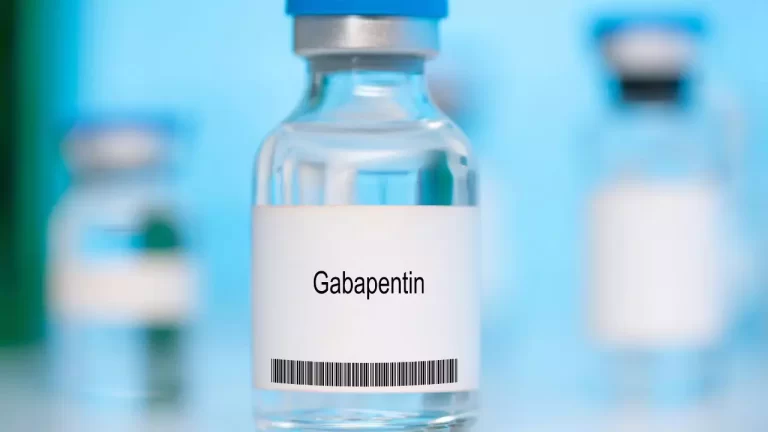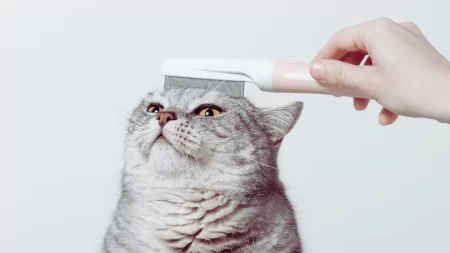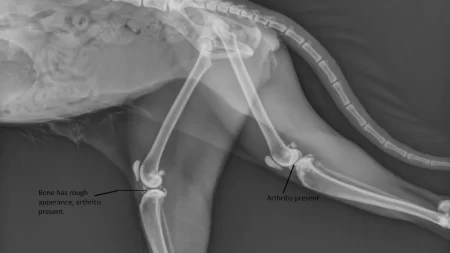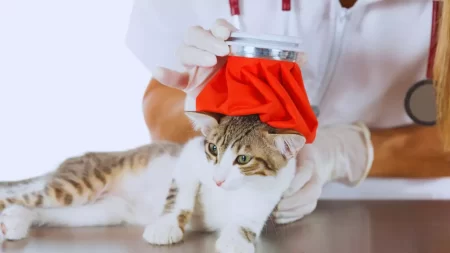Gabapentin is a medication that is sometimes prescribed for cats to treat certain medical conditions. Like any medication, gabapentin does come with some risks and side effects. Understanding when and how gabapentin can be safely used in cats is important for pet owners.
Understanding Gabapentin for Cats
What is Gabapentin and How Does it Work?
Gabapentin is a pharmaceutical drug that belongs to the class of anticonvulsants. It was originally developed to treat epilepsy in humans, but it has also been found to have analgesic (pain-relieving) and anxiolytic (anxiety-reducing) effects. Gabapentin works by affecting the activity of certain neurotransmitters in the brain and spinal cord, which are involved in transmitting pain and mood signals. By reducing the excitability of these nerve cells, gabapentin can help relieve pain and calm down nervous cats.
Common Uses for Cats
Gabapentin is used in cats for several purposes. It may be prescribed to control seizures. It is also given to cats to relieve chronic pain, such as from arthritis or nerve damage. Gabapentin is sometimes used as a mild sedative before procedures like dental cleanings. It can also help reduce anxiety.
Dosage and Administration
The dosage of gabapentin for cats varies based on the condition being treated and the size of the cat. The medication comes in capsule form that can be opened and sprinkled into food. The starting dose often ranges from 5-10 mg per kg of the cat’s body weight, given two to three times daily.
Potential Side Effects
Gabapentin is generally well tolerated by most cats and has a low risk of serious side effects when given at the correct dosage. However, some cats may experience mild to moderate side effects, such as:
- Lethargy
- Drowsiness
- Ataxia (loss of coordination)
- Wobbliness
- Dizziness
- Nausea
- Vomiting
- Diarrhea
- Loss of appetite
- Weight gain
- Dry mouth
- Increased thirst
These side effects are usually transient and tend to improve with continued use of gabapentin. However, if they persist or worsen, or if the cat shows signs of an allergic reaction (such as itching, swelling, or difficulty breathing), the owner should contact the veterinarian immediately and stop giving gabapentin.
When Is Gabapentin Safe for Cats?
Considerations for Dosing
Gabapentin can be safe for cats when it is prescribed by a veterinarian who knows the cat’s medical history and current condition. The veterinarian will determine the appropriate dosage and frequency of gabapentin based on several factors, such as:
- The cat’s weight
- The cat’s age
- The cat’s health status
- The cat’s liver and kidney function
- The cat’s other medications
- The reason for using gabapentin
The owner should follow the veterinarian’s instructions carefully and not change the dosage or schedule without consulting them. The owner should also monitor the cat’s response to gabapentin and report any changes in behavior, appetite, or health to the veterinarian.
Risks and Precautions
Although gabapentin is generally safe for cats when used correctly, there are some situations where it may not be suitable or may require extra caution. These include:
- Cats with liver or kidney disease
- Cats with low blood pressure
- Cats with heart problems
- Cats with diabetes
- Cats that are pregnant or nursing
- Cats that are allergic to gabapentin or similar drugs
- Cats that are taking other medications that may interact with gabapentin
The owner should inform the veterinarian of any of these conditions before starting gabapentin. The veterinarian may adjust the dosage or frequency of gabapentin, or recommend a different medication for the cat.
Interactions With Other Medications
Gabapentin can interact with other medications that the cat may be taking, either enhancing or reducing their effects. Some of the medications that may interact with gabapentin include:
- Antacids
- Opioids
- Antihistamines
- Antidepressants
- Antifungals
- Antibiotics
- Anticonvulsants
- Anti-inflammatory drugs
The owner should tell the veterinarian about all the medications, supplements, and herbal remedies that the cat is taking before starting gabapentin. The veterinarian may adjust the dosage or frequency of gabapentin or the other medications, or advise the owner to avoid certain combinations.
Monitoring and Storage
Importance of Monitoring
Monitoring the cat’s response to gabapentin is essential to ensure its safety and effectiveness. The owner should observe the cat’s behavior, appetite, and health regularly and report any changes to the veterinarian. The owner should also keep track of the cat’s weight, as gabapentin may cause weight gain in some cats.
The owner should also watch for any signs of overdose or toxicity, such as:
- Extreme drowsiness
- Difficulty breathing
- Loss of consciousness
- Seizures
- Coma
If the owner suspects that the cat has ingested too much gabapentin or has a negative reaction to it, they should contact the veterinarian or an emergency clinic immediately and seek medical attention.
Proper Storage of Gabapentin
Gabapentin should be stored in a cool, dry, and dark place, away from heat, light, and moisture. It should also be kept out of reach of children and other pets, as accidental ingestion can be dangerous. The owner should check the expiration date of gabapentin and discard any expired or unused medication safely. The owner should not share gabapentin with other cats or animals, as it may not be suitable for them.







